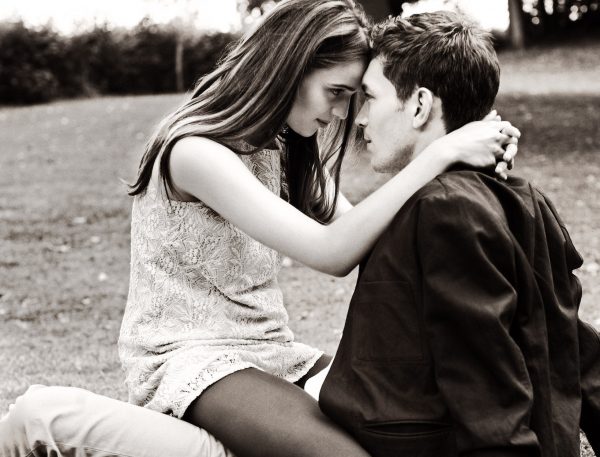I haven’t gotten many signs from Erik for a while, so I’ve been fussing at him a lot, threatening him with the notorious “black time-out chair” but my idle threats were to no avail. (That boy spent a lot of time in that chair. We gave it away, but I bet it has his butt print on it.) Yesterday, he came through, though. I was sitting on the couch writing something for the blog (naturally) and I saw a shadow in front of me to the right. It was Erik walking into the bathroom! For a moment, I questioned by sanity and thought, “It’s probably Lukas.” He’s the spitting image of Erik. (I have no idea what that phrase comes from by the way. Interesting.) Anyway, I digress. I thought it was kind of weird for Lukas to stay in the bathroom with the lights out. (You guys have to see where you’re peeing, right? I mean, it does take some sniper-like aim.) So I got up and walked to the bathroom, peered in, and saw that no one was there. I guess Erik did his business and left. Pretty cool. I gave a big imaginary hug and told him not to make himself so scarce.
I have two announcements: For those of you who want a roomie for the Channeling Erik Event hotel, please say so in the comments section. We already have one blog member looking for one. Second announcement: My sister and brother-in-law are coming over from Little Rock, Arkansas today and will stay for a few days. For that reason, I won’t be posting from Monday through Thursday. Sorry guys. You probably need a break, too!
I don’t know why I’m bringing this up now. It just popped into my mind. Maybe Erik’s behind that, but for those of you who haven’t visited the Channeling Erik YouTube channel, listen to Erik’s voice on the following videos. Be sure to read the description! It gives the timestamp and the backstory.
Okay, okay! I promise I’m getting to the main event, Monsters Under the Bed, Part Two! I’m including the tail end of Part Two for a segue. Here you go:
Erik: That’s right, Mom. It makes things very linear. Uncertainty does create many opportunities. It presents you with an infinite number of choices. In the case of the broken family situation, that choice might be to see the value in persistence and acceptance. It might be, like I said, to feel unsafe to the degree that you suffer. It might be to redefine your role in the family. There are infinite possibilities.
Me: So, to sum it all up…
Erik: Recognize the beauty of uncertainty.
Me: Well, how do people get there? There was one blog member, a young lady, who was so afraid of death that she couldn’t even leave her house. What can people do to feel safe?
Erik: Before, I was saying that the end result is to become comfortable with uncertainty and to recognize that it’s an opportunity for new experiences, but in order to actually get to that point, you have to take baby steps. In the case of this blog member, she got there by reading the blog and being open to it. She allowed herself to connect to or attach to a belief and open her heart up so it could feel what it needed to feel like, “Yeah, this is Truth. This resonates.” When you really connect to something on a “feeling” level, that feeling is completely certain. When you have that feeling, you have no doubt your mind about it. Think about that, Mom.
Me: Yeah. I know that feeling when I know something is an absolute truth. It feels different in my heart area.
Erik: Right, but what I’m talking about is the certainty of the feeling. That is what is always certain, so when she connected to the blog and thought, “Wow, this is true,” her heart wasn’t really saying, “Wow this is true.” Her heart wasn’t saying anything. It was feeling, and what that feeling was elation, a sense of joy, a sense of peace, a sense of comfort. And you know what that feels like. It’s a one hundred percent, without a doubt certainty. That’s one of the first steps: Connect to the thing that gives you a sense of certainty.
Me: Well what about a person who, say, thinks her kid is going to be abducted. Maybe she’s always had that fear for no rational reason. What does she do?
Erik: That can be a very tangled web for people because they can go through this whole process of trying to keep their kid right underneath their noses all the time and all this other shit. Sometimes it has to play out over a long period of time like until the kid becomes an adult. If the parent is an observing type of person, they might think back over their life and go, “Wow, I spent all that time worrying for nothing. I could have done so much more with my kid instead of worrying. I missed out on opportunities because I was so distracted by my anxiety.” That might be one thing. In other cases, when the kid grows up, the parent detaches from their role as a parent, and they see how well their kid turned out and how they were safe all along. In this example, you can’t always attach to certainty in the moment and know that your kid is going to be okay while they’re growing up. You have to look back in time to allow that certainty to manifest itself as a reality.
Me: But you suffer until you get to that point, so what can you do? What belief system do you attach yourself to get through it?
Erik: For some people, they might be able to attach themselves to a belief. Most people have to create a system of support like their own safe little village. For instance, say there’s a parent that has a really hard time letting their kid out of the house. They can become aware of who their friends are, who their neighbors are and who they can trust with their kid. Then, they can allow their kid to go over there, maybe just to play at first, but eventually to spend the night. I’m talking about baby steps. Time and time again, they’ll see that their kid came home okay. The same thing can happen from the kid’s perspective. What if they’re too afraid to leave the house? That’s an opportunity to do the same thing. You can take him to the playground to play with the other kids. Slowly, that can turn into friendships. Then, the kid might be open to having those friends come and spend the night or play for the day and eventually to go over to their house away from their family. All baby steps. To reach certainty, you sometimes need to take baby steps.
Me: I know. Well, what about someone who’s afraid of being raped?
Erik: First let’s talk about why you would even fear being raped in the first place. What motivates you to be drawn to that? For some, as fucked up as this may sound, it’s about intimacy. It’s about intimacy with the physical body and sharing it with someone else. Some people can be so afraid of opening themselves up and being intimate with someone in a physical, sexual way that they completely close that sexual side of themselves off, and then they start obsessing over someone taking that away from them forcefully. Sometimes that whole feeling of not wanting to be intimate with someone and of not wanting to be vulnerable can come from another lifetime.
Me: Or from this lifetime, as a child or something.
Erik: Yes, that could be, but the reason we might choose to carry that over from another lifetime is because maybe our souls want to study that more with a fresh start. It’s a chance to learn about vulnerability. The fear of being physically intimate with somebody, if you want to talk about how it could come about in this life, is maybe you grow up in a culture where sex is considered taboo. That’s really a big thing here in the States. It’s really strange here, and I didn’t really see it before until I disconnected from my physical life when I could sit back and look at it objectively, we look at sex as being vulgar and obscene, but yet violence is not. Our culture teaches us not to embrace vulnerability.
Me: I know! What is up with that? It’s like it’s okay to have movies where people are being dismembered or ripped to pieces but frontal nudity? Oh my god.
Erik: Isn’t that crazy? Crazy shit. That can create that thinking that they don’t want to be intimate with someone. Getting past that is such a powerful thing because it takes learning how to be vulnerable, emotionally. That takes emotional self-honesty, and that creates self-empowerment.
Me: Yeah, and with rape, you’re being forced to be vulnerable.
Erik: No, you’re not being forced at all. Here’s the thing that happens. When someone gets raped, what happens most of the time? They detach. That’s not vulnerability. Vulnerability is remaining attached to the situation and being open that you are completely safe. Rape is a perfect manifestation of aggressiveness towards sex.
Me: How is the loss of a sense of safety attached to vulnerability?
Erik: It’s less about being attached to vulnerability itself and more about being attached to its alter ego, its opposite, not being vulnerable.
Robert: How would that be possible, Erik?
Erik: Because, dude, when you’re completely vulnerable in the situation and acknowledge that everything is ever-changing, then you’re one step closer to accepting and being okay with it. If you’re not okay with that, and you do have a feeling that you’re not safe, you’re rooting this type of suffering: “Oh my god, it’s not safe; it’s not safe; it’s not safe.” When you’re constantly telling yourself that, you’re living in a place of fear, and fear never comes from vulnerability. It comes from being stuck.
Me: Resisting vulnerability.
Erik: Right.
Don’t forget to let us know if you need a roomie!
The Monster Under the Bed, Part One




